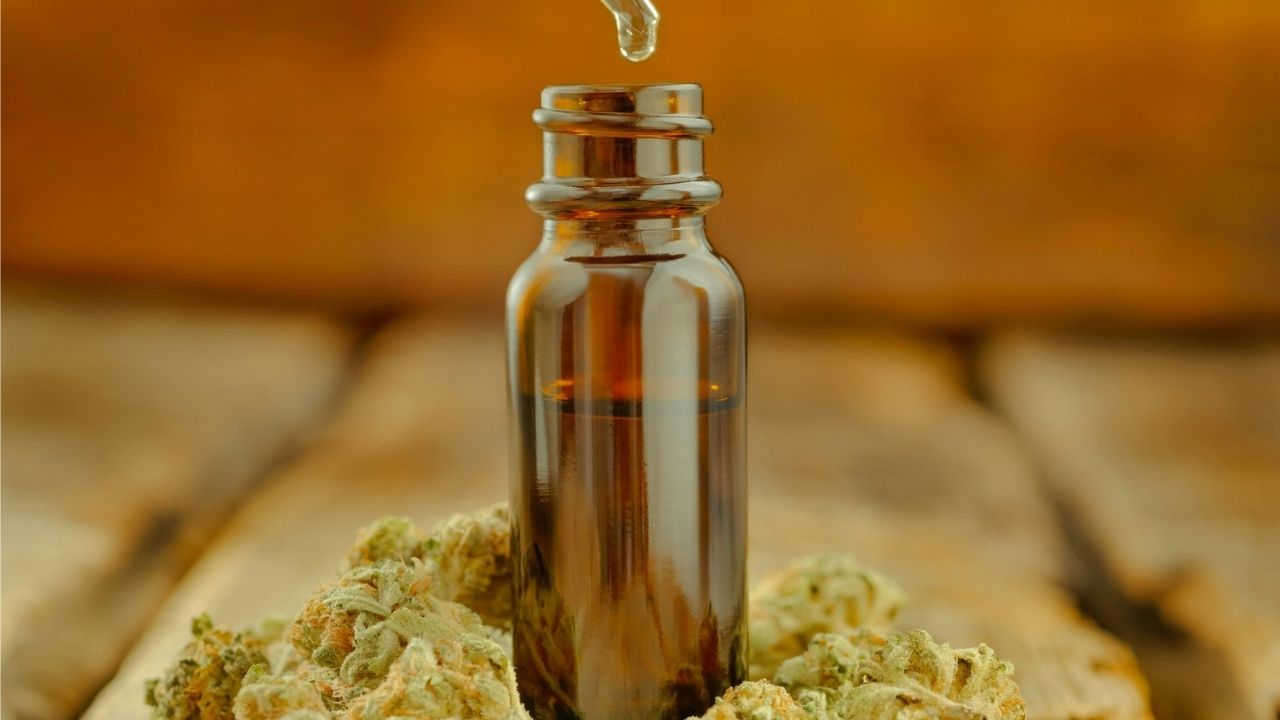
Tetrahydrocannabinol (THC), the primary psychoactive compound in cannabis, has intrigued scientists, doctors, and enthusiasts alike. But what exactly makes THC so special? THC interacts with the endocannabinoid system in our bodies, producing effects that range from euphoria to pain relief. This compound has a rich history, dating back thousands of years, and has been used for both medicinal and recreational purposes. With the growing legalization of cannabis in many parts of the world, understanding THC has never been more relevant. From its chemical structure to its impact on the brain, there's a lot to learn about this fascinating molecule. Ready to dive into 30 intriguing facts about THC? Let's get started!
Key Takeaways:
- THC, found in marijuana, affects the brain and body in various ways, from inducing euphoria and increasing appetite to causing short-term memory problems and impairing motor skills.
- While THC has potential medical benefits, it also comes with risks like anxiety, dependency, and impaired cognitive function, making it important for users to be aware of its effects.
What is Tetrahydrocannabinol (THC)?
Tetrahydrocannabinol, commonly known as THC, is the chemical responsible for most of marijuana's psychological effects. It acts much like the cannabinoid chemicals made naturally by the body. Here are some fascinating facts about THC.
- THC is the primary psychoactive component of cannabis.
- THC was first isolated by Israeli chemist Raphael Mechoulam in 1964.
- THC mimics the action of anandamide, a neurotransmitter produced naturally in the brain.
- THC binds to cannabinoid receptors in the brain, affecting memory, pleasure, movements, thinking, concentration, coordination, and sensory and time perception.
- THC is a lipid, meaning it dissolves in fats and oils rather than water.
How THC Affects the Body
THC interacts with the body's endocannabinoid system, which plays a role in regulating mood, memory, appetite, and pain sensation.
- THC can induce a sense of euphoria by stimulating brain cells to release dopamine.
- THC can alter the sense of time, making minutes feel like hours.
- THC can increase appetite, often referred to as "the munchies."
- THC can cause short-term memory problems.
- THC can impair motor skills and coordination.
Medical Uses of THC
THC has been studied for its potential therapeutic benefits. It is used in various medical treatments.
- THC can help reduce nausea and vomiting, especially in chemotherapy patients.
- THC can stimulate appetite in patients with AIDS or other conditions that cause severe weight loss.
- THC has been shown to reduce pain and inflammation.
- THC can help with muscle spasticity in conditions like multiple sclerosis.
- THC is used in some medications, such as dronabinol and nabilone, to treat specific medical conditions.
Legal Status of THC
The legal status of THC varies widely around the world. Some places have legalized it for medical and recreational use, while others strictly prohibit it.
- THC is legal for recreational use in several U.S. states, including Colorado, California, and Oregon.
- THC is legal for medical use in many countries, including Canada, Germany, and Australia.
- THC remains illegal under federal law in the United States, despite state-level legalizations.
- THC is classified as a Schedule I substance under the Controlled Substances Act in the U.S.
- THC's legal status is often a subject of political debate and public opinion.
THC in Popular Culture
THC has made its mark in popular culture, influencing music, movies, and literature.
- THC is often referenced in songs by artists like Bob Marley, Snoop Dogg, and Wiz Khalifa.
- THC plays a central role in many stoner comedies, such as "Pineapple Express" and "Half Baked."
- THC is a common theme in counterculture literature, including works by authors like Hunter S. Thompson and Jack Kerouac.
- THC has been depicted in various forms of art, from paintings to digital media.
- THC is often associated with the 420 culture, a subculture that celebrates cannabis use.
Risks and Side Effects of THC
While THC has potential benefits, it also comes with risks and side effects that users should be aware of.
- THC can cause anxiety and paranoia in some users.
- THC can lead to dry mouth and red eyes.
- THC can increase heart rate, which may be risky for people with heart conditions.
- THC can lead to dependency and withdrawal symptoms in some users.
- THC can impair cognitive function, especially with long-term use.
Final Thoughts on THC
THC, the main psychoactive compound in cannabis, has a fascinating history and a wide range of effects. From its ancient use in rituals to modern medical applications, THC continues to be a topic of interest. It interacts with the body's endocannabinoid system, influencing mood, appetite, and pain perception. While it offers potential benefits like pain relief and appetite stimulation, it also has side effects such as anxiety and impaired memory. Legal status varies globally, reflecting ongoing debates about its safety and efficacy. As research progresses, our understanding of THC will likely evolve, shedding light on its full potential and risks. Whether you're curious about its history, effects, or legal status, THC remains a compelling subject worth exploring. Stay informed and make educated decisions about its use.
Frequently Asked Questions
Was this page helpful?
Our commitment to delivering trustworthy and engaging content is at the heart of what we do. Each fact on our site is contributed by real users like you, bringing a wealth of diverse insights and information. To ensure the highest standards of accuracy and reliability, our dedicated editors meticulously review each submission. This process guarantees that the facts we share are not only fascinating but also credible. Trust in our commitment to quality and authenticity as you explore and learn with us.
